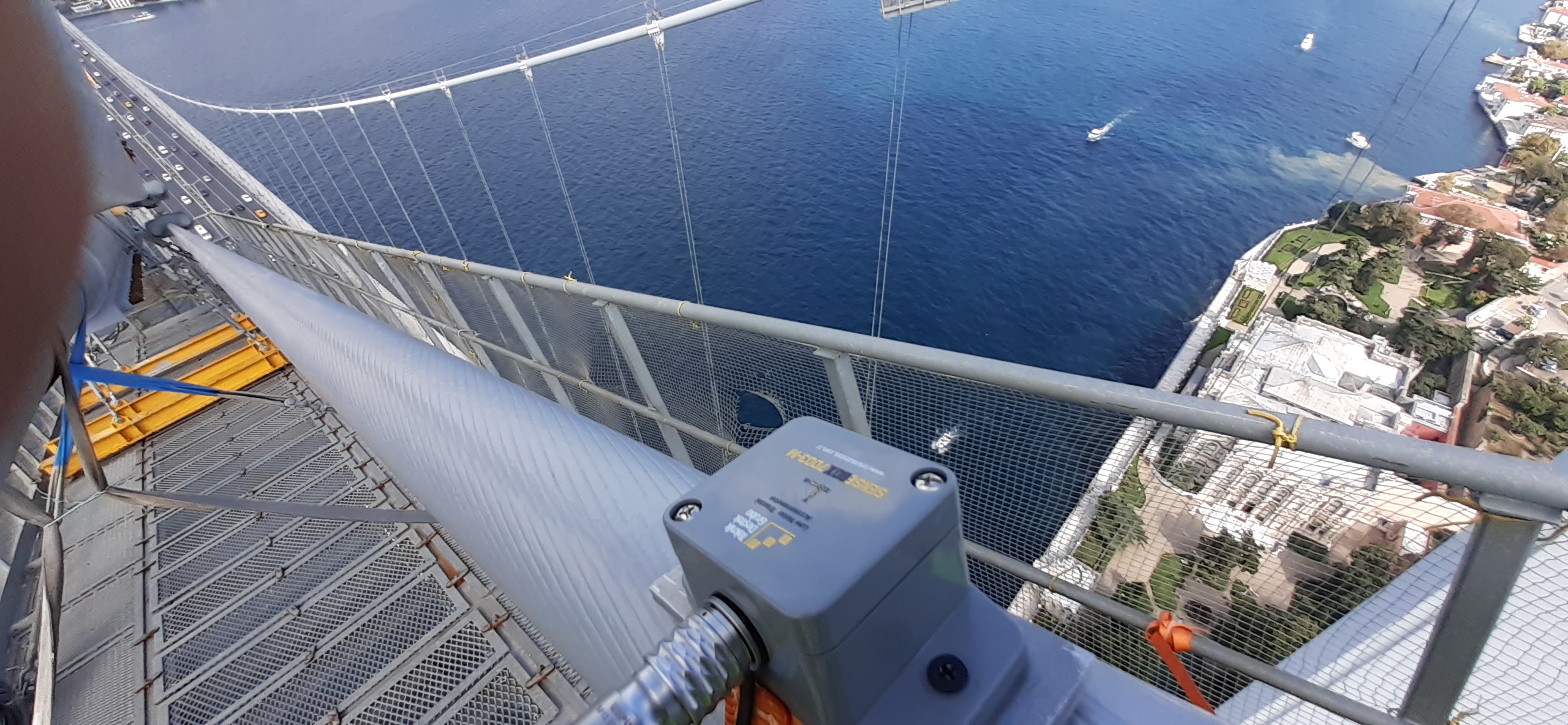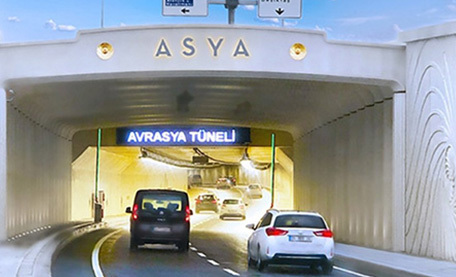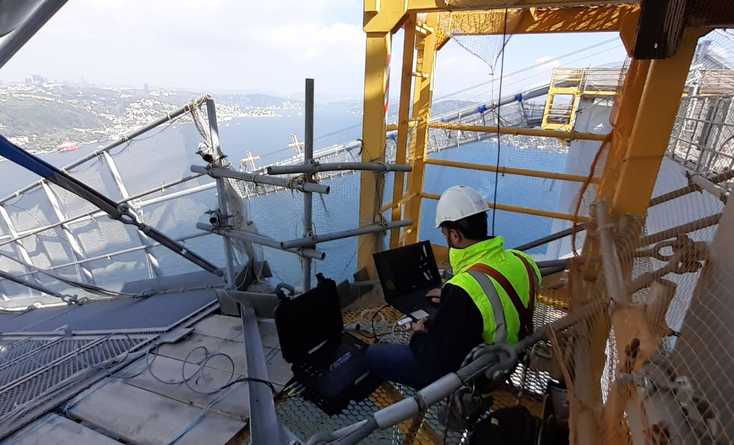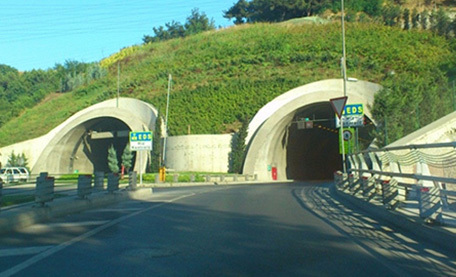BRIDGES, TUNNELS, SUBWAYS
“Prevent Unexpected Faılures & Dısasters wıth SHM”
As far as fatigue behaviour & dynamic loads are considered, bridges are among the most critical structures to be monitored. It is very critical to measure the fatigue life with sensors starting from the construction phase of the structure. In addition, in case of an earthquake, hurricane or accident, it is necessary to determine whether the bridge responds out of the threshold, as soon as possible. Furthermore, optimizing the location of tuned mass dampers on the cables of the suspension bridges and measuring their effects are among the leading solution areas.

SHM systems, sensors and digitizers to be installed on bridges must be specially designed for this field. These systems are expected to support a large number and variety of sensors, supply them precisely and get the data in high resolution, moreover, architecturally, streamline the data flow and prevent data loss. An agile and effective solution and instrumentation architecture should be designed, accordingly. Otherwise, it is very likely to face useless and ineffective systems as experienced in Turkey and all over the world. Considering both device design & manufacturing as well as software and analysis dimensions, TDG has directed the concentration to establish running, durable and operable systems with high-percentage of uptime.
On the other hand, tunnels, which are exposed to very heavy dead loads for a very long time are should be monitored for creep behaviour. Again, in case of strong ground movements, dislocations at tunnel junctions can become critical in terms of vehicle traffic.
Fatigue loading, creep and dislocation are critical for the transportation infrastructure, therefore the structural integrity and dynamic behaviour of bridges and tunnels must be constantly monitored.

|
|
- Fatigue Life Analysis
- Large Number & Variety of Sensors
- Optimum Instrumentation Architecture Planning
- 24/7 Real-Time Monitoring
- TMD- Tuned Mass Damper Location & Effect Analysis
- Rapid Reporting in cases of Earthquake, Hurricane, Accident
- Creep & Dislocation Analysis in Tunnels





